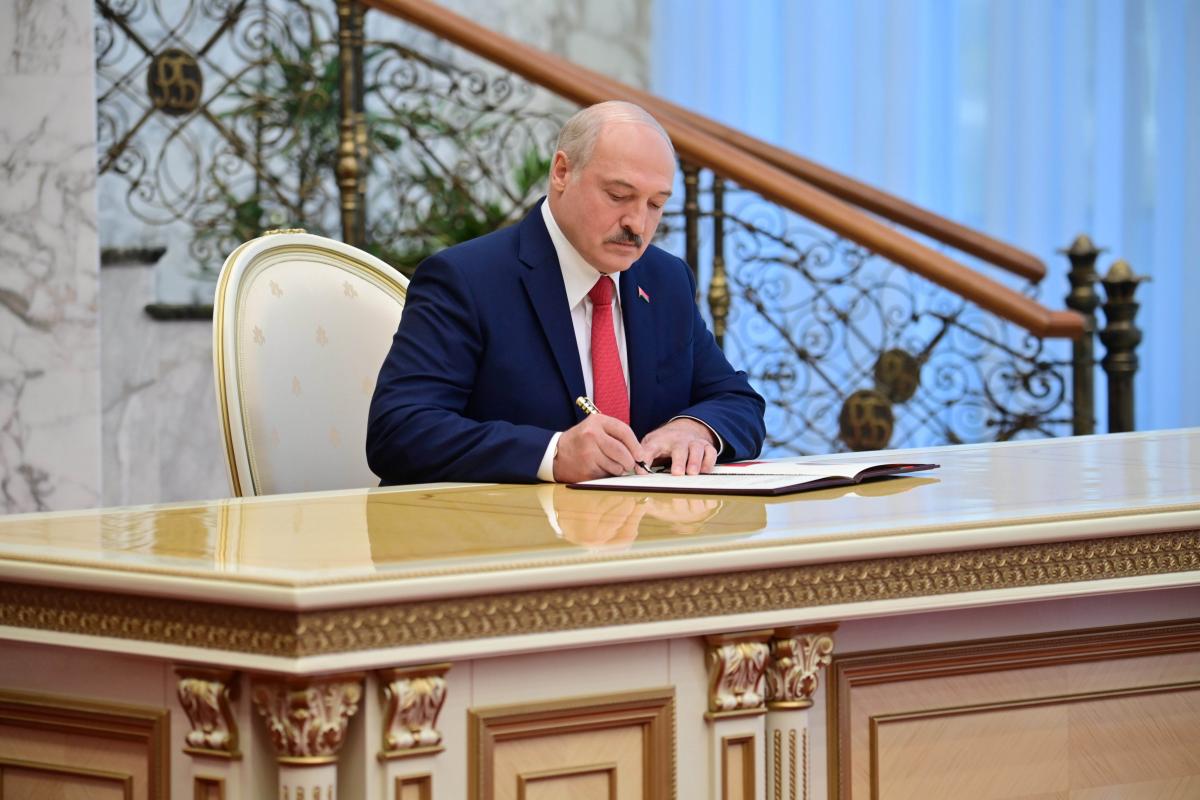
Belarus has drafted a "black" list of Ukrainian officials who may be sanctioned.
"You know, Ukraine's joining the EU sanctions against Belarus is another, in our opinion, example of Ukraine's decisions lacking independence, which demonstrates the inconsistency of our southern neighbor's policy," Belarusian Foreign Minister Vladimir Makei said at a joint briefing with his Russia counterpart Sergey Lavrov.
Read alsoUkraine not to slap sanctions on Lukashenko – mediaAccording to Makei, he regards this as "a mockery of common sense."
This way, the Belarusian foreign minister claimed, Kyiv seeks to portray itself as a model of democracy, but for Belarusians Ukraine does not set a standard of human rights.
"They talk about a pause in relations and at the same time join sanctions against Belarus. This is unacceptable. We will take appropriate measures. At the first stage, we have also prepared a sanctions list against a number of Ukrainian officials. We will see how events unfold," the diplomat said.
Relations between the countries have soured after Ukraine officially supported the protest movement in Belarus. Since then, Kyiv has sided with the EU on condemning violence by the Lukashenko regime, and supported sanctions against 40 Belarusian citizens involved in the killings and dispersal of protesters.
At the same time, Kyiv is in no hurry to support the opposition of Belarus, which, according to the Foreign Ministry, adheres to pro-Russian views, since the representatives of this wing fail to recognize the occupation of Crimea and Russia's aggression against Ukraine in Donbas.
Protests in Belarus: Key events
On August 9, presidential elections were held in Belarus. The country's Central Election Commission said 80.1% of the voters supported incumbent President Alexander Lukashenko, 10.1% voted for his closest rival Svetlana Tikhanovskaya.
Thousands have taken to the streets to protest what many believe was a rigged vote count. Riot police violently crack down on protesters, detain activists, and open politically motivated cases against dissenters.
The European Union has not recognized election results and imposed sanctions against Belarusian officials over vote rigging and the use of violence against protesters.
On September 23, Lukashenko was sworn in a ceremony behind closed doors in Minsk.
On November 6, the European Union imposed sanctions against Alexander Lukashenko and 14 Belarusian officials. As indicated on the website of the European Council, in general, sanctions were imposed against 59 people from Belarus.

